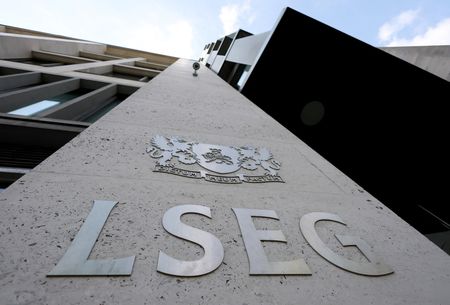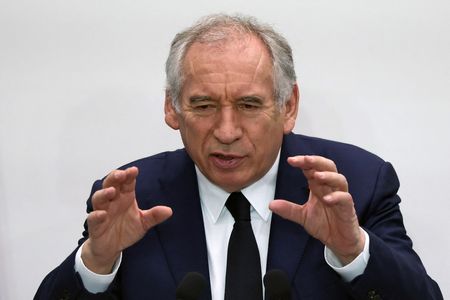By Ankita Yadav
(Reuters) -UK stocks closed lower in volatile trade on Wednesday on investors’ concerns over the U.S. Federal Reserve’s independence, while investors awaited domestic employment data later in the week.
The blue-chip FTSE 100 was down 0.1%, while the midcap FTSE 250 index fell 0.4%.
Minutes before the UK stock market closed, a Bloomberg report said U.S. President Donald Trump is likely to fire Fed Chair Jerome Powell soon, pressuring Wall Street and the dollar, and causing a spike in Treasury yields. Trump later said he was not planning to do so.
Earlier in the day, the FTSE 100 was higher, shrugging off data showing an unexpected rise in Britain’s annual rate of consumer price inflation to its highest in over a year at 3.6% in June.
All eyes will be on the employment and wages figures due on Thursday for hints on the Bank of England’s next steps on interest rates.
“The market is more focussed on the jobs market because of recent commentary from Bank of England officials who suggested that they’re more concerned about weakness in the labour market than in any spike in inflation, which they consider would be temporary,” said Fiona Cincotta, senior market analyst at City Index.
The central bank is largely expected to cut interest rates by a quarter-point in August after recent economic data fuelled concerns of weaker domestic growth and a cooling labour market, but the chances of such a move dimmed after Wednesday’s inflation data.
Among individual stocks, Diageo added 0.5% after the world’s biggest spirits maker announced the departure of CEO Debra Crew after two years on the job, with finance chief Nik Jhangiani taking over in the interim.
Rio Tinto gained 1.2% after the mining giant reported its strongest second-quarter iron ore production since 2018, a day after promoting its iron ore chief Simon Trott to CEO.
AstraZeneca edged 0.5% lower after the drugmaker’s experimental therapy, anselamimab, failed to meet the main goal of a late-stage study for the treatment of AL amyloidosis, a rare condition that causes a buildup of protein deposits in the body.
(Reporting by Ankita Yadav in Bengaluru; Editing by Shinjini Ganguli and Chris Reese)







